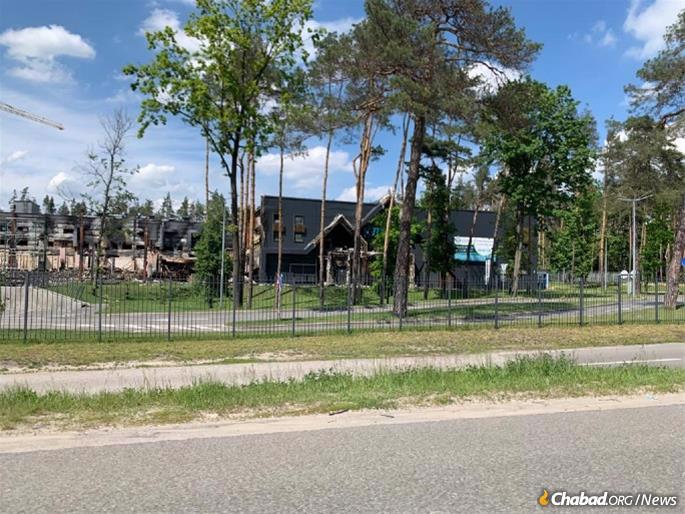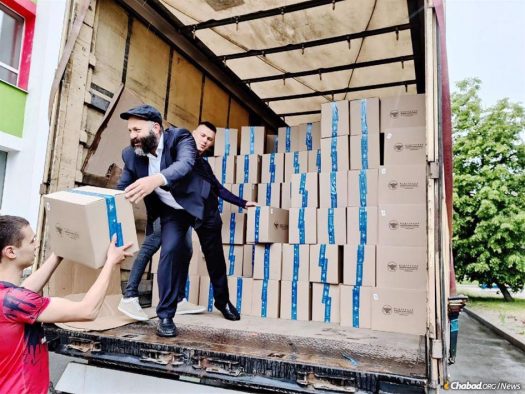
After Months in Exile, Dozens of Chabad Couples Return to Ukraine for Shavuot
by Menachem Posner – chabad.org
It had been nearly three months since Chabad-Lubavitch emissary Devorah Levenharts and her family escaped Kiev as part of a convoy—mostly of women and children—that she and her husband had hastily arranged.
The couple returned to their Kiev home late last week, finding that so much had changed. Bombed out buildings, shuttered stores, broken glass everywhere.
Yet so much remains the same, including the warm hugs, the tears and the joy of preparing for Shavuot for the families she and her husband, Rabbi Mordechai Levenharts, have served since 1998.
Now, using supplies provided by international Jewish aid organizations, the couple is preparing their annual dairy reception to be enjoyed after synagogue services. Levenharts estimates that only 25 percent of the children in her community are in Kiev, but she’ll still be serving up an ice-cream party and distributing books and other treats to whichever children show up.
While nightly curfews, which last from 11 p.m. to 5 a.m., complicate their plans for the traditional all-night learning session, it’s not impossible, she notes, and anyone is free to sleep over until the curfew lifts.
“It’s quiet here in Kiev now, but things are very difficult in the east. We felt this was the right time for us to come back home, to serve our community,” says Levenharts. “We and those who had remained so longed for this reunion.”
Those who remained include the elderly, who are afraid or otherwise unable to leave home. And it is they who are often most vulnerable, requiring medicines, prepared food and other supplies that are hard to come by during wartime.
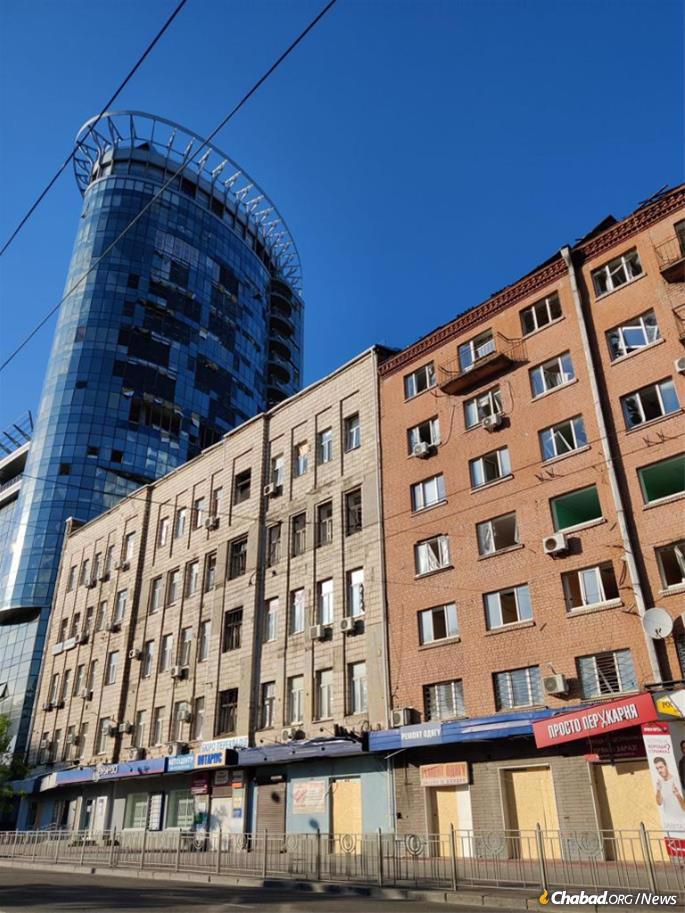
Almost as soon as they arrived, the Levenhartses set about unloading trucks and cars full of relief aid and getting it into the hands of those who can use it, continuing the work that had been done in their absence by volunteers such as Daniel, whose efforts were covered by Chabad.org.
It’s a scene repeating itself all over Ukraine, as Chabad emissary couples are returning home to their communities—from Kharkov in the east to Chernivtsi in the west.
At the same time, Chabad emissaries in a number of Ukrainian cities that had suffered less intense bombardment have been in the country all along, providing crucial infrastructure and services for their communities.
In Zaporizhzhia, newly returned Rabbi Nochum Ehrentreu has been busy all day every day in an effort to enable every Jewish man in the city to put on tefillin and pray, including many who have never done so in their lives.
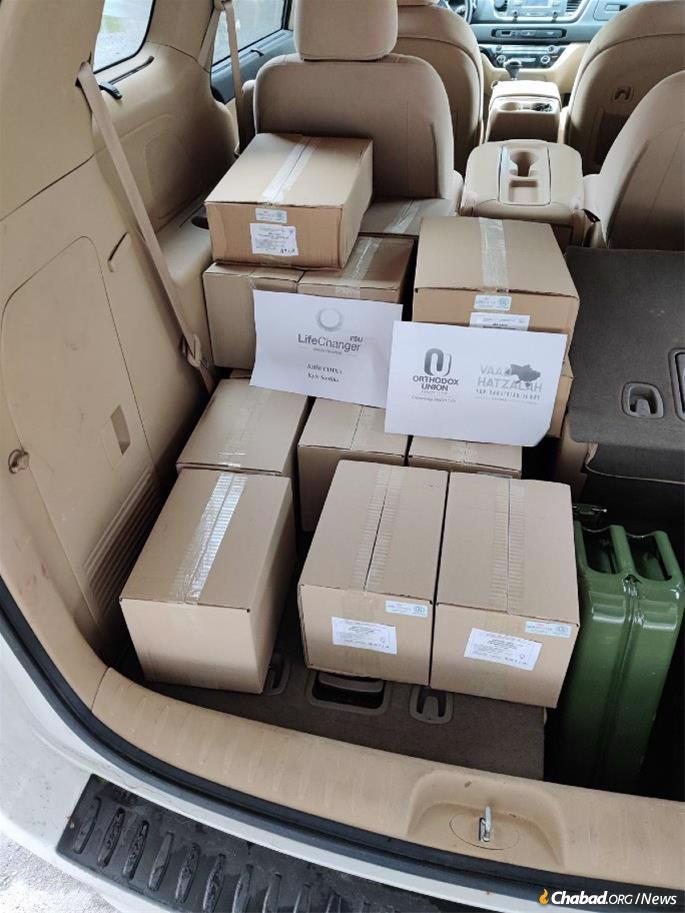
In Khmelnytskyi, Rabbi Yosef Teitelbaum arrived home on Monday and is now preparing a pre-Shavuot barbecue for the Jewish community. He reports that his preschool is up and running again and notes with pride that his Sunday school continued to operate regularly since the beginning of the hostilities.
Like his colleagues across the country, he is also in the midst of distributing aid packages to every family in his community, ensuring that they will be able to celebrate the holiday.
“We hope things will remain calm,” he says, “and we’ll be able to stay more than a few weeks.”
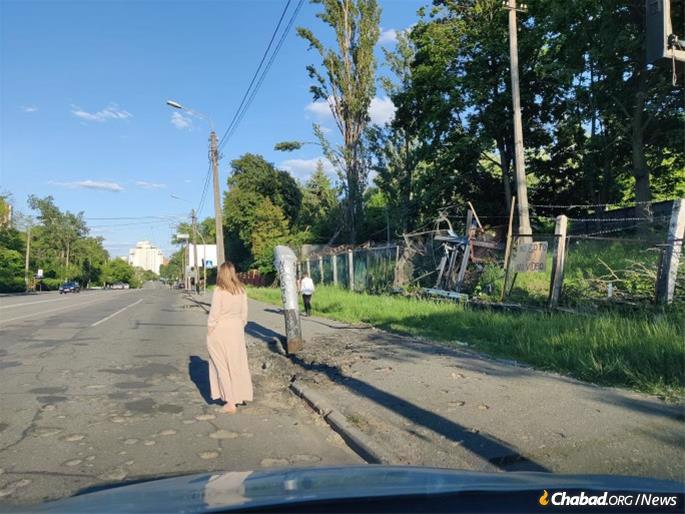
Outside Babi Yar, where her great-great-grandmother, Sonia, had been shot and buried in a mass grave by the Nazis, Levenharts stood silently beside a rocket that had lodged itself firmly into the ground earlier on in the war.
“Our community has been through a lot,” she comments. “When we were in Israel, we were constantly in touch—and now we’re finally back home, among the people to whom we committed our lives.”
